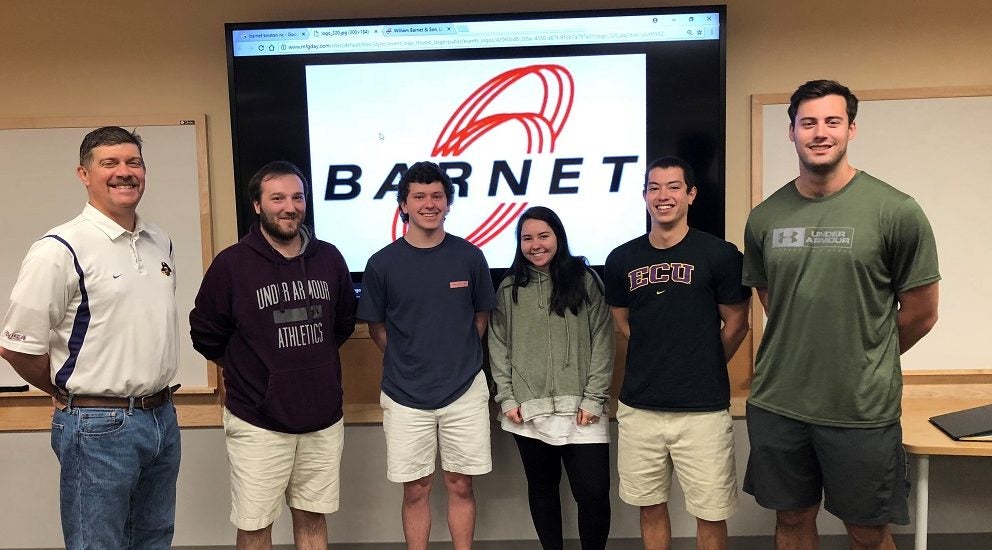June 7, 2018
Supply Chain Management Students Have Local Impact
Three student Supply Chain Management teams consulted with two North Carolina business entities during the 2018 spring semester. East Carolina Vocational Center (ECVC) of Greenville and Barnet Industries of Kinston were each evaluated by student SCM teams for solutions to improve the organization’s supply chain. Highlights of the projects are stated below.
ECVC
ECVC is a private nonprofit corporation that provides job training and employment services to persons with disabilities. As 2017 turned to 2018, it received an opportunity to package hardware kits for home-assembled furniture. However, ECVC did not have a functional matrix to detail how to integrate forecasted demand with inventory data and a bill of materials for each kit. They turned to a student team to analyze their problem and provide solutions. ECVC adopted the MRP system, which addresses supplier communications, parts ordering and financial reporting and is using it to negotiate with suppliers and plan for future hardware kit builds.
Team: Jeremy Gilroy, Michael Scarabelli, Danny Gonzalez, Sarah Wieland, Joe Mintz (not in order)
Barnet
This semester, a student team partnered with Barnet, a global company specializing in fibers, polymers and yarns. Barnet’s main issue was the inefficiency and safety of their essential materials (e.g., boxes, lids, Typar bags, etc.) inventory system. They needed a more effective and safe manner to organize and store this inventory. Using the essential materials, list the team conducted a two-way (by units used and weight of units) 80/20 rule analysis on the data. In turn, the team classified the list by BSP/TFO boxes, as well as Typar bags, by number of units used and total weight. By conducting a breakdown of the inventory and running calculations using tare weights and pallet-bundle amounts, the team compared the heavier and more frequently used items to the lighter and less frequently used items. The students also needed to know how many racking locations would be required for each separate BSP/TFO box and Typar Bag. After this inventory analysis, the team suggested creating five different racking systems of different sizes based on rack length and height. Today, Barnet is in the process of warehouse reorganization, building the racking system, and transferring the essential materials based on the team’s recommendations.
Team: Mayan Benoit, Julian Hudnell, Jeff Strongoli, Andrew Scappi, William Hoff (not in order)
- Categories:
- LCD
- Operations and Supply Chain Management


